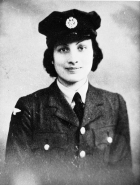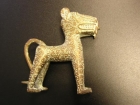Chronological Understanding
Sequencing, events, stories, pictures and periods over time to show how different times relate to each other and contribute to a coherent understanding of the past. You don’t have to teach topics in chronological order but need to relate the topics you teach to their chronological context.
Sort by:
Date (Newest first) | Title A-Z
Show:
All |
Articles |
Podcasts |
Multipage Articles
-

Churches as a local historical source
ArticleClick to view -

Citizenship and the Olympics
ArticleClick to view -

Coherence in primary history: How can we get children to see that their history links up?
ArticleClick to view -

Constructivist chronology and Horrible Histories
ArticleClick to view -

Constructivist chronology and Horrible Histories
ArticleClick to view -

Creating the 'creative history' website
ArticleClick to view -

Cross Curricular Project on a famous person
ArticleClick to view -

Developing early history skills and understanding through the EYFS
ArticleClick to view -

Developing pupils' chronological understanding
ArticleClick to view -

Doing history in the early years and foundation stage
ArticleClick to view -

Elizabethan times: Just banquets and fun?
ArticleClick to view -

Enhancing temporal cognition: Practical activities for the primary classroom
ArticleClick to view -

Enhancing temporal cognition: practical activities for the primary classroom
ArticleClick to view -

Enriching young children's understanding of time
ArticleClick to view -

Eweka's story: Benin and Big Picture History
ArticleClick to view -

From Home to the Front: World War I
ArticleClick to view -

Getting to grips with concepts in primary history
ArticleClick to view -

Having fun through time
ArticleClick to view -

Helping students make sense of historical time
ArticleClick to view -

Here comes the ‘60s
ArticleClick to view

